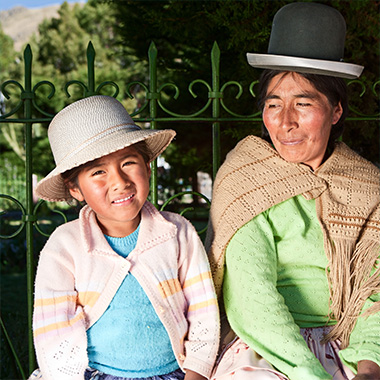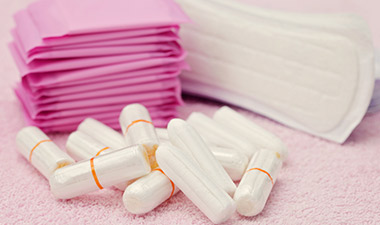Women’s experiences of menstruation differ greatly depending on what area of the world they are living in.
How does menstruation differ for women around the world?
Attitudes towards menstruating women
 The significance of menstruation varies substantially among different cultural and religious groups. For example, in the Cherokee Nation, menstruating women were considered sacred and powerful. However, this positive view is a rare perspective, and in many parts of the world, menstruation is unfortunately regarded as dirty, impure, and taboo. In fact, it was not that many years ago that women would stay home from work or school when it was “their time”. Today some Brahmin Hindu women are secluded during menstruation and do not participate in normal domestic activities. In some forms of Judaism women participate in ritual bathing at the end of the menstrual period called Mikvah, prior to resuming sexual relations. Many religious or cultural practices forbid menstruating women from participating in religious ceremonies, or engaging in physical intimacy.
The significance of menstruation varies substantially among different cultural and religious groups. For example, in the Cherokee Nation, menstruating women were considered sacred and powerful. However, this positive view is a rare perspective, and in many parts of the world, menstruation is unfortunately regarded as dirty, impure, and taboo. In fact, it was not that many years ago that women would stay home from work or school when it was “their time”. Today some Brahmin Hindu women are secluded during menstruation and do not participate in normal domestic activities. In some forms of Judaism women participate in ritual bathing at the end of the menstrual period called Mikvah, prior to resuming sexual relations. Many religious or cultural practices forbid menstruating women from participating in religious ceremonies, or engaging in physical intimacy.
While these examples represent extremes in the cultural perception of menstruation, menstruation is nonetheless a taboo topic in some cultures, including ours. Negative views of the normal, healthy process of menstruation are slowly improving over time.
Access to menstrual products
Globally, access to menstrual products and education about menstruation varies substantially. Developed countries tend to have a wide availability of feminine hygiene products such as tampons, pads, menstrual cups, and pantiliners. In other areas, particularly in parts of Africa, India, and Southeast Asia, access to menstrual products, especially disposable ones, is highly limited. Women in these areas typically use reusable cloth to absorb menstrual blood, but do not always have facilities or proper cleaning products to adequately clean soiled cloths. In countries where products are widely available, access to products may still be a struggle for some women, particularly those living in poverty or who are homeless. Homeless shelters tend to focus on providing meals and clothing, and feminine hygiene is not presented as a priority to donors.
 Poor access to feminine hygiene products can result in girls and young women missing school. This is known to be a major problem in some Asian and African communities, but is also a problem in some parts of Canada. Further, some schools in parts of Africa do not have places available for girls to change their sanitary products, meaning they are not able to attend school while menstruating.
Poor access to feminine hygiene products can result in girls and young women missing school. This is known to be a major problem in some Asian and African communities, but is also a problem in some parts of Canada. Further, some schools in parts of Africa do not have places available for girls to change their sanitary products, meaning they are not able to attend school while menstruating.
Increasing access to menstrual products in both developed and developing countries is a problem to which greater attention and resources need to be devoted. Improving women’s experience of menstruation globally will require a coordinated effort of policy makers in each country, the private sector, and women’s rights activists.

